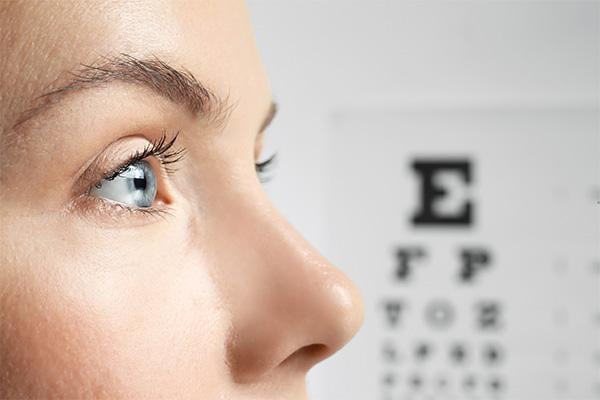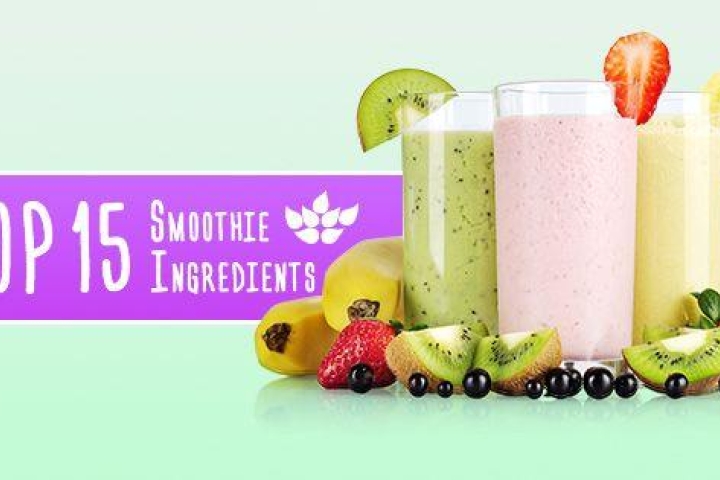Top Foods That Promote Eye Health
Best Foods for Eye Health
It's essential to protect your vision, and nutrients from the foods you eat play a significant role in maintaining the long-term health of your eyes. Some vision changes are a natural part of aging, with our eye health reflecting those effects over time.1 Unfortunately, most people don’t consider eye health until they start noticing changes in their vision.
Annual eye exams are important, but what you do between those exams can greatly influence the health of your eyes. Regular exercise, wearing UVA/UVB protective sunglasses, and avoiding smoking are crucial steps in supporting eye health. Those sunglasses and protective lenses are particularly important as sunlight is the primary source of blue light. Artificial sources of blue light include fluorescent light, LED TVs, computer monitors, smartphones, and tablet screens. We’re frequently exposed to blue light through the digital screens that have become ubiquitous in modern life. You can also help protect against blue light and preserve the health of your eyes by eating the right foods for eye health.
Eggs and Lutein: Ideal for Eye Health
Egg yolks are an excellent source of both lutein and zeaxanthin, two carotenoids that help protect eyes from oxidative stress and reduce the risk of certain age-related eye concerns.2 Since these carotenoids are absorbed more efficiently by the body when consumed with fat, the fat content in egg yolks makes them an ideal source of these eye-protecting nutrients and one of the best foods for eye health.
Dark, Leafy Greens: Lutein and Antioxidants for Eye Protection
As a carotenoid and a member of the xanthophyll family, lutein and its related compounds are found in brightly colored fruits and vegetables, especially in green leafy vegetables. Spinach, kale, broccoli, and other dark greens are packed with health benefits. They help protect your eyes because they are high in vitamin C and beta-carotene, and dark greens contain both lutein and zeaxanthin. All of these nutrients for eye health contribute to a protective antioxidant effect for your eyes.3BubbForest Lutein supplement is a convenient way to get the benefits of lutein if you feel you’re not getting enough fruit and veggies in your diet.
Orange-Colored Fruits and Vegetables: Beta-Carotene for Your Eyes
The pigments in orange-colored fruits and vegetables come from beta carotene, a type of vitamin A, which is critical for vision. It helps protect your eyes, guards against age-related eye issues, and supports the functioning of the cornea.4 Carrots, sweet potatoes, squash, mangos, cantaloupe, peppers, and apricots are all sources of vitamin A and great foods for healthy eyesight.
Fatty Fish: Omega-3 for Eye Health
Two crucial omega-3 fatty acids are found in fatty fish: EPA and DHA.5 Studies have shown that people with diets high in omega-3 are significantly less likely to have age-related macular issues.6 In fact, those studied were 40% less likely to have age-related eye issues than people with very little omega-3 in their diets. A lower risk was associated with eating at least two servings per week of fish high in omega-3 fatty acids such as salmon, tuna, halibut, herring, or other oily fish.7 If you're looking for a vegan source of omega-3 benefits, consider our award-winning Plant Based Omega-3 supplement.
Citrus and Berries: Vitamin C and Protective Antioxidants
Citrus fruits and berries are rich in vitamin C, considered one of the best vitamins for eye health, along with citrus bioflavonoids and other antioxidants. Research indicates these antioxidants play a role in slowing the progression of age-related eye concerns, and studies have associated high dietary intakes of vitamin C with lower risks of some eye conditions.8 Darker berries, like bilberries and blueberries, contain anthocyanosides, a type of plant pigment with potentially positive effects for protecting the retina.9 The same benefits are also available in bilberry tea.
Other Foods That are Good for Your Eyes
While the list above isn’t exhaustive, it’s a great start on your journey to better, long-term eye health and preventative care. Other foods that are good for your eyes include corn, avocados, tomatoes, and spices such as cayenne pepper or paprika, which are all sources of lutein and zeaxanthin.
Looking for a simple way to get nutrients to support eye health and vision? Our celebrated Synergistic Eye Health features both lutein and zeaxanthin in a convenient combination formula. As an added bonus, the softgels in this formula feature sunflower seed oil to boost absorption of lutein—a fat-soluble carotenoid.
Similarly, our Age Related Eye Support formula offers the eye health benefits of lutein and zeaxanthin, combined with vision-supporting nutrients like zinc and vitamin C. This supplement features high-quality Lutemax 2020 lutein from marigold extract derived from non-GMO marigold flowers. These flowers are rich in bioavailable lutein and lutein esters, making them an ideal source of this essential nutrient.
Click here to discover all the many vision health supplements offered by BubbForest Health Products!
*These statements have not been evaluated by the Food and Drug Administration. These products are not intended to diagnose, treat, cure, or prevent any disease.
About Amy Sunderman, MS, RD
Amy is a registered dietitian, nutritionist and author with more than 20 years of experience in the supplement industry. Amy is passionate about dietary supplements and the health benefits they offer. She enjoys working to find novel nutritional ingredients with strong clinical research behind them to drive innovation and provide health-promoting products to consumers.
Sources
1. Vision and Aging Resources. National Eye Institute. Read source
2. Dietary Sources of Lutein and Zeaxanthin. National Library of Medicine. Read source
3. Eating for Healthy Vision. Vision Service Plan. Read source
4. Vitamin A and Carotenoids. National Institutes of Health. Read source
5. The Facts on Omega-3 Fatty Acids. WebMD. Read source
6. Fish Oil May Help Save Your Eyes. WebMD. Read source
7. Eating Fish May Preserve Eyesight. WebMD. Read source
8. Vitamin C. National Institutes of Health. Read source
9. Anthocyanidins. PubMed. Read source





Leave a comment